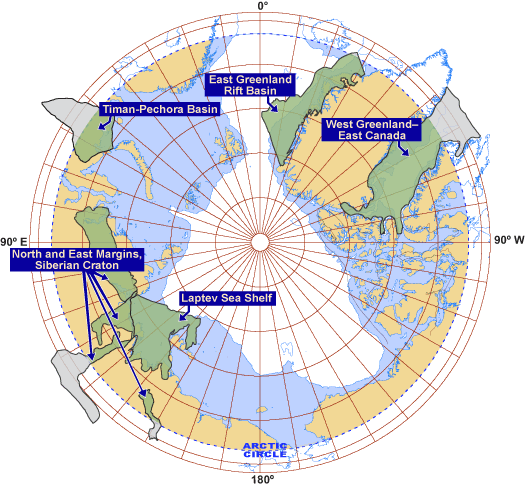Norway keeps eye on Russian drilling in Arctic
The northern neighbour considers that Rosneft can find a deposit that straddles the border
Russia's drilling efforts in the Arctic region prompt neighbouring Norway to intensify its activity aimed to identify potential fossil reserves on its side of the border. If Rosneft finds a large deposit straddling the frontier between the two countries, Norway will fight to secure its economic interests.
An increase in Russia's exploration activity in the Arctic should lead Norway to prepare its own plan for exploring the region, says Reuters citing Norwegian Minister of Petroleum and Energy Terje Søviknes. According to the politician, identifying potential offshore oil and gas reserves near the northern maritime border with Russia will let Norway better protect its economic interests in the remote region.
Speaking at an energy conference in Sandefjord, the minister said: ''We need to start the discussion about what to do in the far north. We see a development on the Russian side of the border, where they are drilling and likely will find oil.'' If Russia comes across a big find that straddles the border, Norway must be prepared to do its utmost to secure its economic interests, considers Søviknes. ''This is why we must continue to map out these areas.''

Arctic reserves are essential for Norway as it expects a drop in oil and gas output in the middle of the 2020s. About two-thirds of Norway's undiscovered oil and gas resources are located in the Barents Sea, says the Norwegian Petroleum Directorate (NPD). It sees the biggest potential in the northern part of the sea, but the area is not yet open for drilling. The NPD estimates undiscovered resources there at 1,4bn cubic metres (8,6 billion barrels) of oil equivalent. A resource management plan for the Barents Sea is expected to be presented to the Norwegian parliament in 2020.
As for Russia, the nation prioritises Arctic oil and Arctic development. In August 2017, Prime Minister Dmitry Medvedev announced that the state would invest more than $2,75bn in the programme for Arctic development. The plan includes boosting economic growth, developing sea infrastructure and exploring the continental shelf. Rosneft, which possesses 28 exploration licences in the Russian Arctic shelf, estimates the area's combined reserves at 34bn tonnes of oil equivalent, or 249,22bn barrels. The company believes that the Arctic could supply 20-30% of Russia's total oil production by 2050.
Norway and Russia came to an agreement on their maritime borders in the Arctic region in 2010. The two countries signed a treaty on maritime delimitation and cooperation that allows them to exploit resources hidden beneath the seabed.